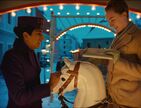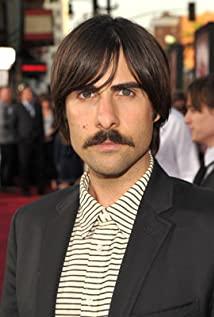It is not surprising that Wes Anderson took a long time to discover Zweig. Because until recently, in English-speaking countries, Zweig has been forgotten by people, and the people who know him are limited to a small group of literary enthusiasts and German students in universities. At the Strand Bookstore in New York, known as the "18-mile collection", currently there are only 8 Zweig works on the shelves. But in the Dussmann bookstore in Berlin, Germany, a large number of Zweig's works have their own counters. In France, Zweig's works have never been out of print.
From the 1920s to the 1930s, Zweig was often referred to as "the most translated author in the world", so his reputation no longer seemed particularly eye-catching. The rhythm of his novellas is tight, and the psychological description in biographical literature is vivid. These works have been sold all over the world, from London to Buenos Aires, readers are greedy to read. His speech has a large audience, and tickets for his speech at Carnegie Hall in New York quickly sold out. He regularly speaks on the radio and was interviewed by the BBC in an early experimental TV show in the 1930s. He prides himself on being home from all corners of the world, has traveled to many places, and got acquainted with many cultural and artistic giants of that era. He had correspondence with Einstein and also delivered a eulogy at the funeral of Sigmund Freud.
Oliver Matuchek, the writer who wrote a biography of Zweig, spent 20 years studying his life and writings. He said: “Zweig was one of the first star writers, although he has only a very small number of star writers. A few photos have been seen in newspapers, but even in an era when there is no television, he can be recognized wherever he goes. His productivity is incredible. Among them, there are 36 works written in German. Excluding 500 newsletters published in newspapers and magazines." A gentleman who loves
to describe restaurants
, Zweig has collected Goethe's manuscripts and possessed a desk used by Beethoven. In many ways, it is worthwhile. The representative of European elegance who disappeared before the Nazis came to power. Zweig was born in a wealthy Jewish family in Vienna in 1881. His rich life background means that he can devote himself to writing without worrying about food and clothing. Fame made him richer and richer. With his fame, he began to travel extensively, give lectures, or sell books, and stayed in luxury hotels all over Europe-no wonder he has so many stories unfolded in big hotels.
"For a writer like Zweig, the best stage you can find for him is a restaurant," Matuhek said: "From distinguished guests to humble receptionists, there are all three people who come and go there. Of course, many readers who have read his works may have never stayed in a five-star hotel. But they have their own ideas and can use their own imagination to make up the world."
In "Post Office Girl", the protagonist is "World War I." "An inferior post office worker in post-Austria. She was invited to go to a resort in the Alps, where the gorgeous pomp made her unconscious. She is well-dressed and elegant, but when her humble origins are exposed, she has to pack and leave under humiliation. And Zweig's 1927 novelette "24 Hours in a Woman's Life" also revolved around a scandal that took place in a luxurious room. Just like the "Budapest Hotel", it is also narrated in the form of a play, and this is one of Zweig's favorite methods. Wes Anderson not only borrowed these works, but also drew inspiration from Zweig’s contemporary Thomas Mann: the slutty protagonist in his "Confessions of the Liar Felix Cruel", Ben He was an ordinary porter in a big hotel in Paris, and then made his fortune by coaxing wealthy guests with bluffs.
People are dead but not forgotten. The
movie "The Budapest Hotel" ended with a happy ending, but there was a hint of sadness hidden, which also alluded to Zweig's sudden and tragic life ending. Although the "World War II" was in full swing at the time, newspapers all over the world also set aside pages for reporting his death, and many of them still made headlines. In 1934, Zweig fled from his home in Salzburg. Soon afterwards, his beloved Austria was annexed by the German Empire. The books he wrote were banned, burned, and his nationality was cancelled.
The last few years of Zweig's life went into exile in the United Kingdom, the United States, and finally ended in Brazil. On the evening of February 22, 1942, in Petropolis, a city not far from Rio de Janeiro, Zweig and his second wife swallowed a large dose of barbiturates, and both fell on the bed. "The world of my mother tongue has fallen and abandoned me", he wrote in his suicide note, "and my spiritual home, Europe, has also perished on its own."
The "Budapest Hotel" shot by Wes Anderson is a new interpretation of Zweig. He condenses Zweig's life experience and the essence of his works, and reshapes it with his unique film language. As artists, they are very different. The style of Zweig's works is serious, the plot is full of variables, and it is better than psychological description, with the stubborn and serious style of his time. And Wes Anderson's movies are witty and funny, cool and ridiculous, focusing on the appearance of the characters rather than the inner world. Although the style of "Budapest Hotel" is superficial and the rhythm is too fast, it is a milestone to some extent-after all, it pretends to be serious, and uses young fans to pay homage to the statue of the great writer as a film. At the beginning. Wes Anderson is full of enthusiasm for his "dish", and it is revealed in every frame of the movie, which will arouse more people's attention to this great writer who is almost forgotten by us.
View more about The Grand Budapest Hotel reviews











